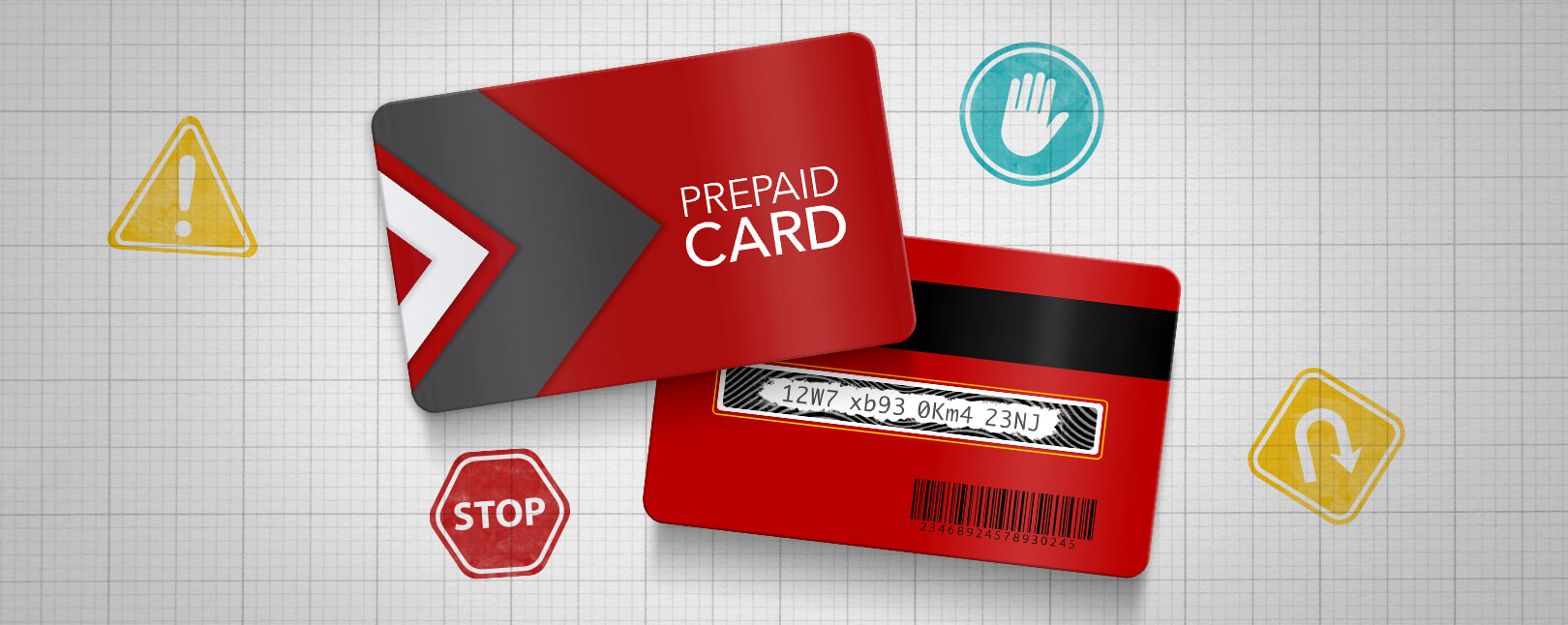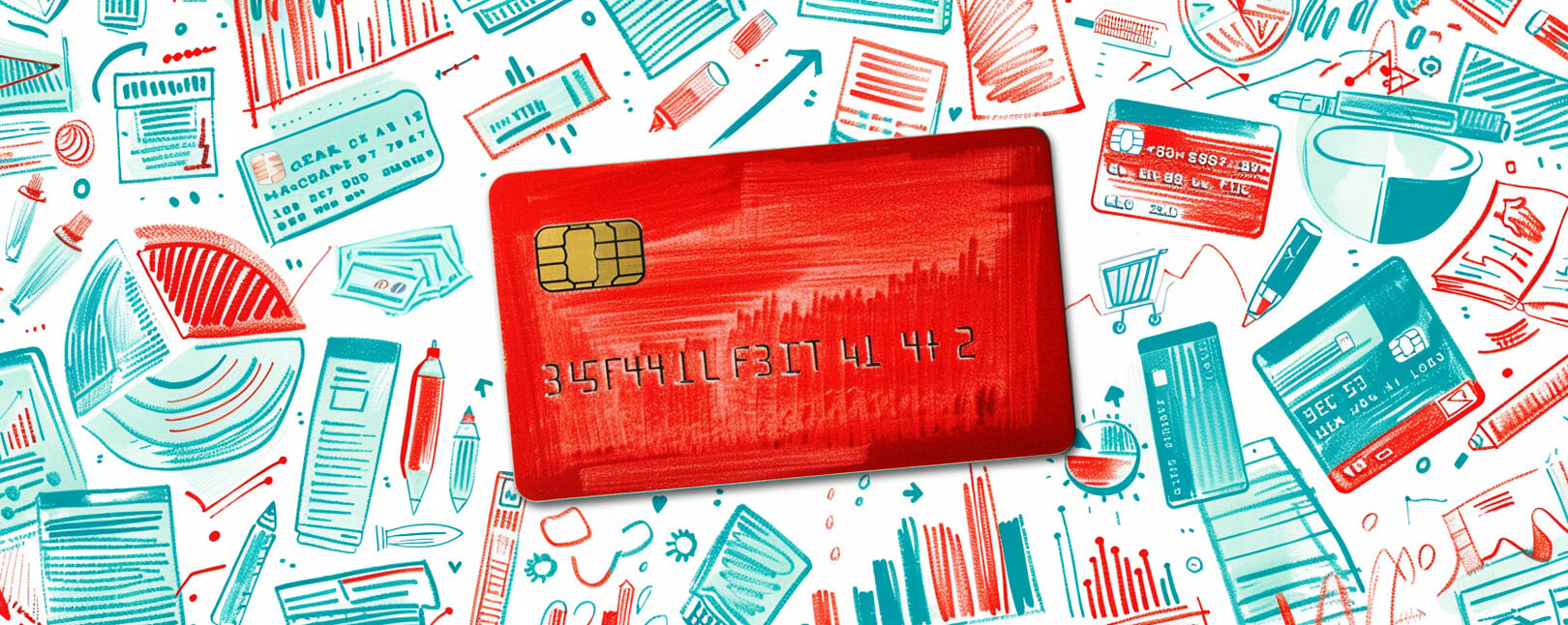5 Common Prepaid Card Scams, Plus Tips to Help You Reduce Risk
Prepaid cards are a great way to pay. They let customers shop for items they really want without carrying cash or remembering payment details. For merchants, they offer a means to encourage return patronage and improve customer loyalty.
Prepaid cards are unassuming and practical, and can make great gifts, or can be used by the buyers themselves. It’s no surprise, then, that the global market for transactions involving prepaid cards will reach $3.65 trillion in 2023.
However, the popularity of this payment option has its downsides, too. Prepaid card scams are also on the rise, and both consumers and merchants are at risk. So, what can both groups do to reduce their exposure? Let’s get into it.
Recommended reading
- Address Fraud: How Criminals Swap Addresses to Abuse Victims
- How do Banks Conduct Credit Card Fraud Investigations?
- What is Wardrobing? How Can Retailers Stop Refund Abuse?
- Key Credit Card Fraud Statistics to Know for 2024
- Scammers See Opportunity as March Madness Begins
- Man-in-the-Middle Attacks: 10 Tips to Prevent These Scams
Why Prepaid Card Scams are so Popular With Fraudsters
When we say “prepaid card fraud,” that can apply to any illegal or fraudulent use of prepaid card credentials. Fraudsters often use prepaid cards to make illegal purchases, accept fraudulent payments, or arrange payment to facilitate larger scams. These scams are tricky because they can be difficult to spot, and they’re even harder to trace.
A customer must provide personal information to set up a reloadable prepaid card. However, limited-use prepaid cards don’t have to be tied to any particular account or identity. This makes it incredibly easy for fraudsters to use prepaid cards in money laundering and other scams. After all, they’re equivalent to cash, and are relatively untraceable.

For instance, prepaid cards can be used at many ATMs to convert stolen earnings to cash without much fuss. They can be used by fraudsters to outsource their services to other bad actors on the dark web. They can also be used to move funds between illegal accounts online. Prepaid cards offer anonymity to criminals, and that makes them very useful as a way to move cash easily across borders.
Prepaid Card Scams: The Warning Signs
Absolutely no one is immune to fraud. It’s essential for every consumer and merchant to understand that. Each time a user clicks into an email thread, browses an unsecured website, or checks their account balance in a coffee shop, they could be exposing their data to potential fraudsters.
It’s nearly impossible nowadays to avoid sharing personal account information online and in stores. That said, knowing the ways in which you can be targeted, and how it happens, can be a huge help. This is the best way to avoid becoming a victim.
We recommend keeping these points in mind:
Specific methods will vary. But, in each of the scenarios above, the scammers are hoping you’ll rush to a conclusion without much thought. Don’t give them the satisfaction.
NEVER answer “urgent” emails or texts you don’t recognize. NEVER follow instructions to pay bills or debts with a prepaid card, and NEVER take open threats at face value.
The Top 5 Prepaid Card Scams to Watch Out For
Ultimately, prepaid cards are a popular vehicle for fraud because they are so easy to obtain, load, drain, and exchange on the dark web and beyond. Prepaid cards offer versatility and freedom to consumers. But, they do the same thing for fraudsters seeking to take advantage of the same conveniences.
Here are just a few common examples of the scams that can be committed using prepaid cards:
1. Advance Fee Scam
This is a more modern version of a classic wire transfer scheme. Here, though, the scammer uses email to commit the crime, instead of the post office. Using a fake email address, criminals will extort money from their victim. The scammer attempts to convince a victim to pay an upfront fee in order to receive a prepaid card fully loaded with cash, for instance.
2. Card Reloading
This tricky scam involves a criminal calling or emailing a merchant to claim they are a representative for their payment processor or issuing bank. Using stolen prepaid card data, the scammer will declare there is a problem loading the card. The attacker will have done their homework to be as believable as possible on this front. An unwitting merchant or staff member will reload the card electronically. This allows the scammer to offload the funds into a dummy account or withdraw them directly from an ATM. Sometimes, the merchant may reload the card several times before detecting the fraud.
3. Card Skimming
For this scam, a fraudster will preload a gift card or prepaid card with data stolen involving a magnetic stripe reader. When an unsuspecting consumer buys and activates that gift card, the fraudster will steal the card number and use those funds to make purchases or siphon funds from the card.
4. Card Swapping
Card swapping involves a scammer stealing a stack of physical cards and copying or altering the numbers. The scammer will then return the cards to the store and re-hang them on the rack. When a consumer purchases and loads one of the cards with cash, the fraudster can drain the account before the customer even leaves the store.
5. Tax Return Fraud
Most tax return services offer prepaid cards as a means of providing tax returns to non-checking account holders each year. Using a stolen identity, a scammer can fill out tax forms and select a prepaid card to receive the tax refund for that consumer. In effect, the fraudster submits another individual’s tax return, then steals their funds.
For consumers, it’s absolutely critical that you only purchase prepaid cards from merchants and retailers that you trust. Also, always ask the merchant to check their cards before you buy, to ensure that the card is new and shows no signs of tampering.
Another tip to keep in mind is to be wary of prepaid cards hanging on unattended racks, like those outside of the cash wrap area or on an endcap at the supermarket. Whenever possible, order prepaid and gift cards directly from the card issuer or merchant’s website.

Consumer Tips: How to Avoid Prepaid Card Scams
Awareness and swift response are just two parts of the puzzle. To that end, here are a few steps consumers can take to prevent being the victim of prepaid card scams:
What to Do if You’ve Already Been Targeted
We’ve discussed how you might be targeted by a scammer, and which tactics can be used against you. What do you do if you’ve already become a victim of a prepaid card scam, though?
According to the FTC, once you know you’ve been caught up in any prepaid card scams, your next steps should be to:
- Call the police and file a report. This may also help you gain assistance from the prepaid card issuer.
- Contact the prepaid card retailer to report the fraud. They may ask you to share your receipt and other purchase information for a possible refund.
- Contact the FTC to report the fraud and explain the situation in great detail. Dates, times, phone numbers, and any screenshots of messages are excellent information that can help the FTC prevent future cases.
- Contact your state attorney general to report the case. Although FTC is the main governing body for consumer-related fraud, individual cases could become attached to class-action suits or other legal proceedings to prevent future attacks.
Avoiding prepaid card scams is the easiest way to keep your personal finances and information safe. It isn't just consumers who have to worry about these threats, though. As we’ll see below, merchants and financial institutions can also feel the impact of prepaid card scams.
How Merchants Can Avoid Prepaid Card Scams
As we mentioned above, it’s very difficult to track prepaid cards. Purchases made with these cards can lack accurate or detailed cardholder information. They may also have no defined origin point for shipping and tracking, or other pertinent details which might help merchants detect fraud.
Obviously, this is a huge problem, and it doesn’t come with any easy answers. Despite these challenges, though, it is possible to avoid many prepaid card scams by addressing potential weaknesses in your business practices.
A few adjustments to your merchant operations, for example, could drastically reduce your overall risk of fraud. Some best practices include:
Limiting Prepaid Card Sales
This won’t directly prevent prepaid card fraud, but it can reduce its likelihood by imposing reasonable limitations on purchases.
Set Daily Purchasing Limits
Scammers often try to use the entire balance of a stolen card in one go, then disappear. Imposing daily spending limits helps prevent this.
Tracking Prepaid Card Data
Tracking prepaid cards from purchase through redemption increases your chances of spotting suspicious behavior, such as several new card balances going to one account.
Monitoring Affiliates
Retailers should monitor their branding activity across card trading sites, social media markets, and reseller sites such as OfferUp. Scammers could be reselling stolen prepaid cards.
Limiting Value Limits
It’s much simpler to convert one $500 prepaid card to cash than a stack of $50 cards. Thus, limiting value amounts may make your cards less attractive to scammers.
Securing Data
Teach employees to double-check all cards prior to activation for any sign of tampering. Instruct them to do this at the end of a transaction, when they are less hurried.
However you go about it, a merchant’s first priority should always be to limit their exposure to risk. This applies to prepaid card scams, as well as other fraud threats.
By extension, this will help protect their customers from would-be scammers waiting for an opportunity to exploit them.
FAQs
What are prepaid cards?
Prepaid cards are temporary payment cards featuring a preloaded balance of funds that decreases as the card is used. Many prepaid cards are intended for limited use with a fixed amount that is not reloadable. Some can be reloaded continually until the card is canceled or expired.
What kinds of prepaid cards are there?
There are several forms of prepaid cards on the market. Some of most commonly-used include general purpose reloadable cards, prepaid debit cards, prepaid gift cards, and payroll cards.
Can you get scammed with a prepaid card?
Yes. Essentially, prepaid card scams involve any illegal or fraudulent use of stolen prepaid card credentials. Fraudsters often use prepaid cards to make illegal purchases, accept fraudulent payments or arrange payment to facilitate larger scams. Prepaid card fraud is tricky because it can be difficult to spot and even harder to trace.
What are the risks of prepaid cards?
While a customer must provide personal information to arrange a reloadable prepaid card, limited-use prepaid cards don’t have to be tied to any particular account or identity. This makes it incredibly easy for fraudsters to use prepaid cards in money laundering and other scams, which are relatively untraceable.
Can a prepaid debit card be traced?
Not effectively, no. Since the cards are effectively anonymous, there’s no real way to reliably identify a card user and track their activity.











